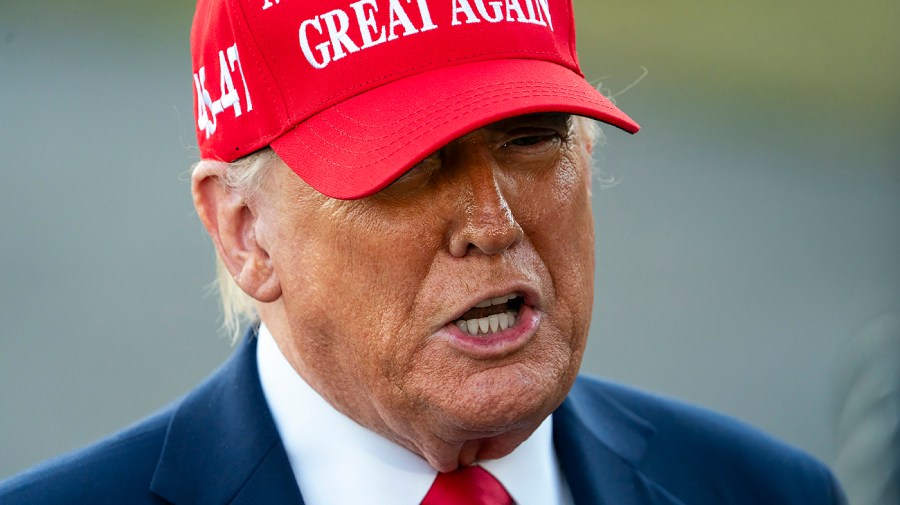
The stock market has suffered through a two-day selloff after President Trump went forward with imposing steep new tariffs on Canada and Mexico.
The Dow Jones Industrial Average closed Tuesday with a loss of 670 points, or 1.6 percent, as Trump’s 25-percent tariffs on Canadian and Mexican goods took effect. Trump also boosted tariffs on Chinese goods by 10 percentage points, adding to import tax rates set during his first administration and maintained by former President Biden.
The S&P 500 index lost 1.2 percent on the day, and the Nasdaq composite closed 0.4 percent lower.
Tuesday marked the second consecutive day of losses for the stock market after Trump affirmed his plans Monday to drastically increase import taxes on two of the country’s closest economic partners.
The Dow has lost more than 1,300 points since Monday, and the S&P 500 has fallen more than 3 percent over the past five trading days, wiping out its gains since Election Day.
The stock slide is the latest signal of economic concern after weeks of falling consumer sentiment, plateauing inflation and deepening fears among business leaders about the impact of Trump’s tariffs.
“We’ve said for a while now that it’s time to prepare for a bigger pullback. Time may be running thin here. The job market is under a lot of pressure, and that pressure may start compounding with federal layoffs and hiring freezes,” wrote Callie Cox, chief market strategist at Ritholtz Wealth Management, in an analysis.
“It’s time to be nervous. Not bearish, but nervous. While there isn’t enough evidence to think we’re on the cusp of a deep pullback, the economy is changing quickly. The fact that we’re pulling growth forward makes me even more skeptical of the months ahead.”
The tariffs will affect well more than $1 trillion of imported goods; the trio of countries exported a combined $1.4 trillion of goods to the U.S. in 2022, more than 5 percent of gross domestic product (GDP) in that year.
The U.S. imports billions of dollars worth of produce, energy, autos, car parts, lumber and other key goods from Canada and Mexico. The economies of all three nations have become deeply integrated in the three decades since the enactment of the North American Free Trade Agreement, which was updated under Trump with the U.S.-Mexico-Canada Agreement (USMCA).
Canadian Prime Minster Justin Trudeau said his country will impose its own 25-percent tariffs on U.S. goods, and Canadian provincial leaders have also pledged to retaliate against the U.S. Mexican President Claudia Sheinbaum said her country would unveil its retaliatory efforts Sunday without progress toward an agreement.
While Trump insisted Monday there was no room left for Canada or Mexico to negotiate their way out of new tariffs, Commerce Secretary Howard Lutnick announced there could be a breakthrough on the way.
In an interview with Fox Business shortly after the stock market closed, Lutnick said Trump was discussing a potential compromise with Canadian and Mexican officials that could be announced Wednesday.
“I think he’s going to work something out with them,” Lutnick told Fox Business host and former Trump administration economic official Larry Kudlow.
He added, “It’s not going to be a pause — none of that pause stuff — but I think he’s going to figure out, you do more, and I’ll meet you in the middle someway, and we’re going to probably be announcing that tomorrow. Somewhere in the middle will likely be the outcome, the president moving with the Canadians and Mexicans, but not all the way.”











